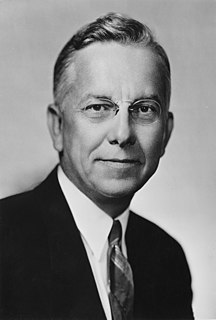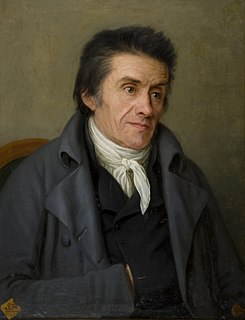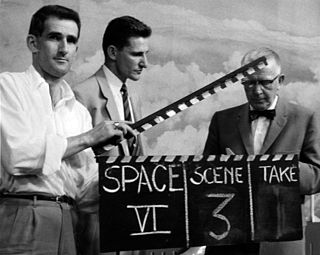A Quote by H. P. Lovecraft
Truly, there are terrible primal arcana of earth which had better be left unknown and unevoked; dread secrets which have nothing to do with man, and which man may learn only in exchange for peace and sanity; cryptic truths which make the knower evermore an alien among his kind, and cause him to walk alone on earth.
Related Quotes
My conception of the audience is of a public each member of which is carrying about with him what he thinks is an anxiety, or a hope, or a preoccupation which is his alone and isolates him from mankind and in this respect at least the function of a play is to reveal him to himself so that he may touch others by virtue of the revelation of his mutuality with them. If only for this reason I regard the theater as a serious business, one that makes or should make man more human, which is to say, less alone.
If in this supreme test, in face of which the braggart falls silent and every heroic gesture is paralyzed, a man walks straight up to the cause of his fear and is not deterred from doing that which is good -- which ultimately means for the sake of God, and therefore not from ambition or from fear of being taken for a coward -- this man, and he alone, is truly brave.
It is far. But there is no journey upon this earth that a man may not make if he sets his heart to it. There is nothing, Umbopa, that he cannot do, there are no mountains he may not climb, there are no deserts he cannot cross; save a mountain and a a desert of which you are spared the knowledge, if love leads him and he holds his life in his hand counting it as nothing, ready to keep it or to lose it as Providence may order.
The responsibility which rests upon man is proportional to the ability which he possesses and the opportunity which he faces. Perhaps that responsibility is no greater for him than was that of Notharctus or Eohippus or a trilobite, each in his own day, but because of man's unique abilities it is the greatest responsibility that has ever rested upon any of the earth's offspring.
If the innocent honest Man must quietly quit all he has for Peace sake, to him who will lay violent hands upon it, I desire it may be considered what kind of Peace there will be in the World, which consists only in Violence and Rapine; and which is to be maintained only for the benefit of Robbers and Oppressors.
Thinking leads man to knowledge. He may see and hear, and read and learn, as much as he please; he will never know any of it, except that which he has thought over, that which by thinking he has made the property of his mind. Is it then saying too much if I say, that man by thinking only becomes truly man? Take away thought from man's life, and what remains?
The science and technology which have advanced man safely into space have brought about startling medical advances for man on earth. Out of space research have come new knowledge, techniques and instruments which have enabled some bedridden invalids to walk, the totally deaf to hear, the voiceless to talk, and, in the foreseeable future, may even make it possible for the blind to "see."
Only when there is a wilderness can man harmonize his inner being with the wavelengths of the earth. When the earth, its products, its creatures, become his concern, man is caught up in a cause greater than his own life and more meaningful. Only when man loses himself in an endeavor of that magnitude does he walk and live with humanity and reverence.
Well, every man has a religion; has something in heaven or earth which he will give up everything else for - something which absorbs him - which may be regarded by others as being useless - yet it is his dream, it is his lodestar, it is his master. That, whatever it is, seized upon me, made me its servant, slave - induced me to set aside the other ambitions a trail of glory in the heavens, which I followed, followed with a full heart. ...When once I am convinced, I never let go.
Never in all their history have men been able truly to conceive of the world as one: a single sphere, a globe, having the qualities of a globe, a round earth in which all the directions eventually meet, in which there is no center because every point, or none, is center - an equal earth which all men occupy as equals. The airman's earth, if free men make it, will be truly round: a globe in practice, not in theory.
At first, man was enslaved by the gods. But he broke their chains. Then he was enslaved by the kings. But he broke their chains. He was enslaved by his birth, by his kin, by his race. But he broke their chains. He declared to all his brothers that a man has rights which neither god nor king nor other men can take away from him, no matter what their number, for his is the right of man, and there is no right on earth above this right. And he stood on the threshold of freedom for which the blood of the centuries behind him had been spilled.





































